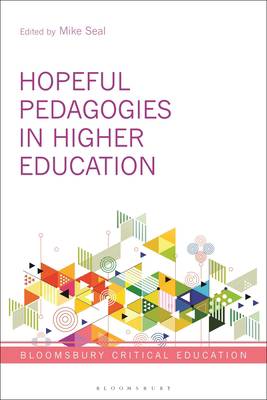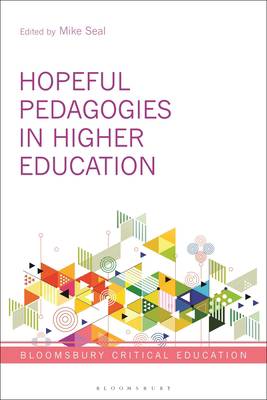
Je cadeautjes zeker op tijd in huis hebben voor de feestdagen? Kom langs in onze winkels en vind het perfecte geschenk!
- Afhalen na 1 uur in een winkel met voorraad
- Gratis thuislevering in België vanaf € 30
- Ruim aanbod met 7 miljoen producten
Je cadeautjes zeker op tijd in huis hebben voor de feestdagen? Kom langs in onze winkels en vind het perfecte geschenk!
- Afhalen na 1 uur in een winkel met voorraad
- Gratis thuislevering in België vanaf € 30
- Ruim aanbod met 7 miljoen producten
Zoeken
Hopeful Pedagogies in Higher Education
€ 254,45
+ 508 punten
Omschrijving
Many accounts of critical pedagogy, particularly accounts of trying to enact it within higher education (HE), express a deep cynicism about whether it is possible to counter the ever creeping hegemony of neo-liberalism, neo- conservatism and new managerialism within Universities. Hopeful Pedagogies in Higher Education acknowledges some of these criticisms, but attempts to rescue critical pedagogy, locating some of its associated pessimism as misreading of Freire and offering hopeful avenues for new theory and practice. These misreadings are also located in the present, in the assumption that unless change comes within the lifetime of the project, it has somehow failed. Instead, this book argues that a positive utopianism is possible. Present actions need to be celebrated, and cultivated as symbols of hope, possibility and generativity for the future - which the concept of hope implies. The contributors make the case for celebrating the pedagogies of HE that operate in liminal spaces - situated in the spaces between the present and the future (between the world as it is and the world as it could be) and also in the cracks that are beginning to show in the dominant discourses.
Specificaties
Betrokkenen
- Uitgeverij:
Inhoud
- Aantal bladzijden:
- 320
- Taal:
- Engels
- Reeks:
Eigenschappen
- Productcode (EAN):
- 9781350116535
- Verschijningsdatum:
- 17/06/2021
- Uitvoering:
- Hardcover
- Formaat:
- Genaaid
- Afmetingen:
- 156 mm x 234 mm
- Gewicht:
- 616 g

Alleen bij Standaard Boekhandel
+ 508 punten op je klantenkaart van Standaard Boekhandel
Beoordelingen
We publiceren alleen reviews die voldoen aan de voorwaarden voor reviews. Bekijk onze voorwaarden voor reviews.








